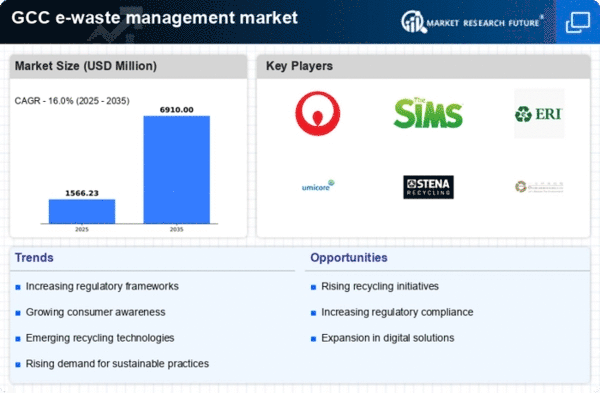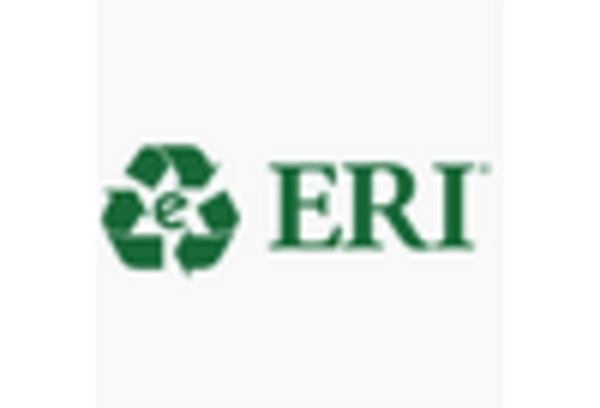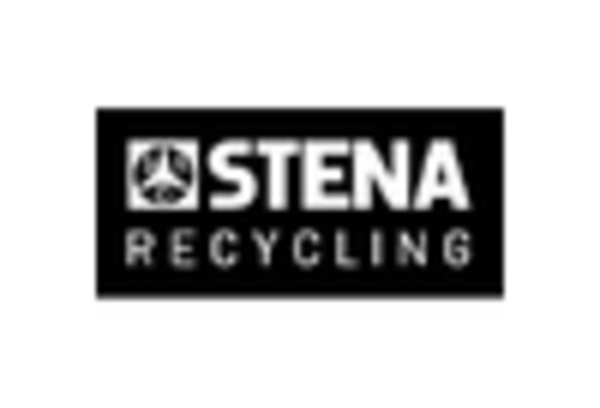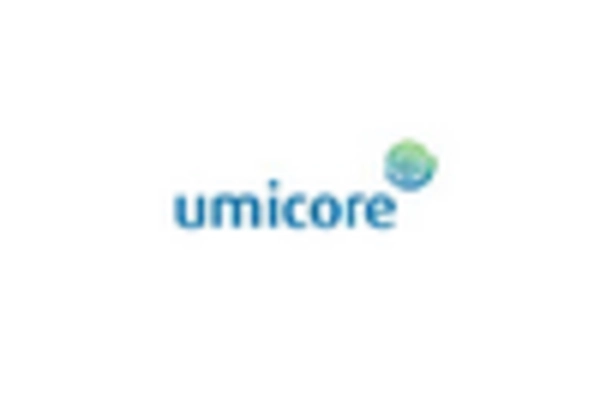Rising E-Waste Generation
The e-waste management market is experiencing a significant increase in the generation of electronic waste across the GCC region. With the rapid adoption of technology, it is estimated that e-waste generation in the GCC could reach approximately 2.5 million tonnes by 2025. This surge is driven by the proliferation of consumer electronics, including smartphones, laptops, and home appliances. As a result, the demand for effective e waste-management solutions is intensifying. The region's growing population and urbanization further contribute to this trend, as more households acquire electronic devices. Consequently, the e waste-management market is poised for growth, as stakeholders seek to implement sustainable practices to manage the rising volumes of e-waste responsibly.
Government Initiatives and Policies
Government initiatives and policies significantly influence the e-waste management market, promoting sustainable waste management practices. In the GCC, various governments are implementing regulations to encourage recycling and proper disposal of electronic waste. For instance, initiatives such as the Saudi Arabian National Waste Management Strategy aim to enhance recycling rates and reduce landfill waste. These policies not only foster a more sustainable environment but also create opportunities for businesses within the e waste-management market. The financial implications are noteworthy, as investments in e waste-management infrastructure are expected to exceed $1 billion by 2025, reflecting the commitment of GCC governments to address the e-waste challenge.
Technological Innovations in Recycling
Technological innovations enhance recycling processes and efficiency in the e-waste management market. Advanced technologies, such as automated sorting systems and artificial intelligence, are being integrated into e-waste recycling facilities across the GCC. These innovations improve the recovery rates of valuable materials, such as gold, silver, and copper, which are often found in electronic devices. The potential for recovering these materials can significantly offset the costs associated with e waste-management. As the market evolves, the adoption of such technologies is expected to increase, leading to more effective and sustainable recycling practices. This trend indicates a promising future for the e waste-management market, as technological advancements continue to drive operational efficiencies.
Public Awareness and Education Campaigns
Public awareness and education campaigns increasingly influence the e-waste management market by informing consumers about the importance of responsible e-waste disposal. In the GCC, various organizations and governments are launching initiatives to educate the public on the environmental impacts of improper e-waste disposal. These campaigns are crucial in changing consumer behavior and encouraging participation in recycling programs. As awareness grows, the demand for e waste-management services is likely to increase, as consumers seek out responsible disposal options. The potential impact of these campaigns on the e waste-management market is substantial, as they not only promote sustainable practices but also drive the growth of the industry by fostering a culture of recycling and responsible consumption.
Corporate Responsibility and Sustainability
The growing emphasis on corporate responsibility and sustainability increasingly shapes the e-waste management market among businesses in the GCC. Companies are recognizing the importance of adopting environmentally friendly practices, including responsible e-waste disposal. This shift is partly driven by consumer expectations for sustainable practices, as well as the potential for cost savings through efficient waste management. As a result, businesses are investing in e waste-management solutions that align with their sustainability goals. The market is likely to see a rise in partnerships between corporations and e waste-management service providers, facilitating the development of innovative recycling programs. This trend not only enhances corporate image but also contributes to the overall growth of the e waste-management market.
















